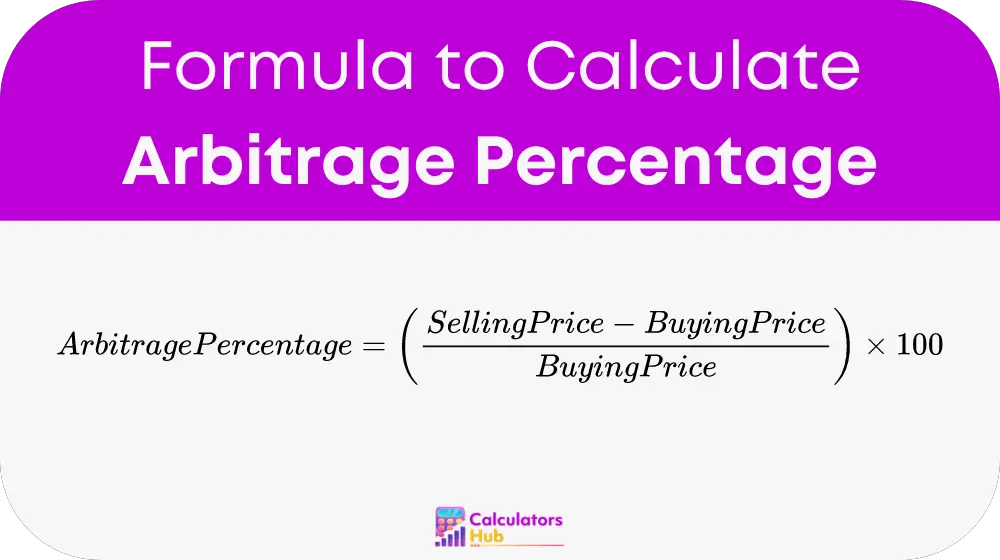The Arbitrage Percentage Calculator is a simple yet powerful tool designed to help traders calculate the potential profit margin from arbitrage opportunities. By inputting the buying and selling prices of an asset, traders can immediately see what percentage of profit they could potentially make, allowing them to make quick decisions in fast-paced trading environments.
Formula of Arbitrage Percentage Calculator
The formula to calculate the arbitrage percentage is straightforward:

Here's a breakdown of the terms:
- Selling Price: The price at which you can sell the asset in another market.
- Buying Price: The price at which you can purchase the asset in one market.
This formula helps determine how much profit a trader can expect to make as a percentage of their initial investment, providing a clear picture of whether an arbitrage deal is worthwhile.
General Terms and Conversion Table
For ease of use and to facilitate quick look-ups by traders, here is a table of common terms associated with arbitrage trading and their definitions:
| Term | Definition |
|---|---|
| Arbitrage | The simultaneous purchase and sale of an asset to profit from a difference in the price. |
| Spread | The difference between the buying and selling prices of an asset. |
| Market Efficiency | The extent to which market prices reflect all available information. |
| Risk Arbitrage | A type of arbitrage that involves uncertainty about the completion of a deal (often in mergers and acquisitions). |
| Statistical Arbitrage | A profit situation arising from pricing inefficiencies identified through statistical methods. |
Example of Arbitrage Percentage Calculator
Let’s assume you find an opportunity to buy gold in one market at $1,800 per ounce and sell it in another market at $1,820 per ounce. Using the arbitrage percentage formula:
Arbitrage Percentage = (($1,820 - $1,800) / $1,800) × 100 = 1.11%
This calculation shows that the trade would yield a profit margin of 1.11%, helping the trader to assess the opportunity quickly.
Most Common FAQs
Arbitrage trading is the practice of buying and selling the same asset in different markets simultaneously to take advantage of differing prices for the same asset.
While arbitrage is often consider a low-risk strategy, it is not entirely risk-free. Market movements, transaction costs, and timing issues can affect the profitability.
Arbitrage opportunities can be find by monitoring price discrepancies across different markets or exchanges. Many traders use automated systems to help identify such opportunities more efficiently.